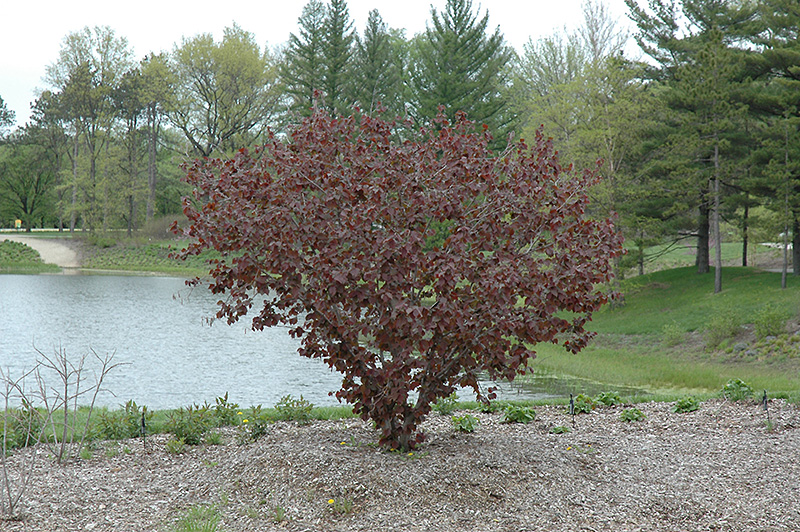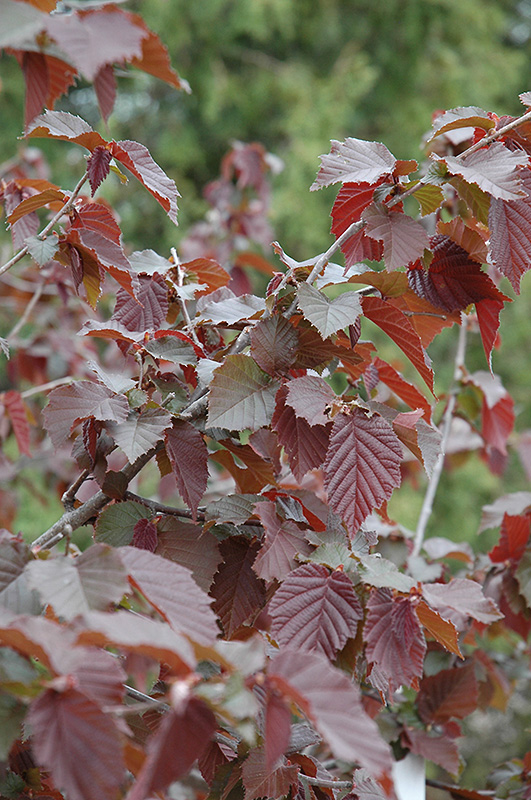>> Home
Height: 10 feet
Spread: 8 feet
Sunlight:
![]()
![]()
Hardiness Zone: 4
Description:
Foliage is a fabulous burgundy in spring turning to coppery-bronze by mid-summer, bears no fruit; a fine color accent shrub, great for naturalizing areas, adaptable to various soil types and moisture levels
Ornamental Features
Purple Haze Hazelnut has attractive coppery-bronze deciduous foliage which emerges burgundy in spring on a plant with an upright spreading habit of growth. The large fuzzy oval leaves are highly ornamental but do not develop any appreciable fall color. It has purple catkins in early spring.
Landscape Attributes
Purple Haze Hazelnut is a dense multi-stemmed deciduous shrub with an upright spreading habit of growth. Its relatively coarse texture can be used to stand it apart from other landscape plants with finer foliage.
This shrub will require occasional maintenance and upkeep, and is best pruned in late winter once the threat of extreme cold has passed. It is a good choice for attracting birds to your yard. It has no significant negative characteristics.
Purple Haze Hazelnut is recommended for the following landscape applications;
- Accent
- Hedges/Screening
- General Garden Use
Planting & Growing
Purple Haze Hazelnut will grow to be about 10 feet tall at maturity, with a spread of 8 feet. It has a low canopy with a typical clearance of 1 foot from the ground, and is suitable for planting under power lines. It grows at a medium rate, and under ideal conditions can be expected to live for 40 years or more.
This shrub does best in full sun to partial shade. It is very adaptable to both dry and moist locations, and should do just fine under average home landscape conditions. It is not particular as to soil type or pH. It is highly tolerant of urban pollution and will even thrive in inner city environments. This particular variety is an interspecific hybrid.

